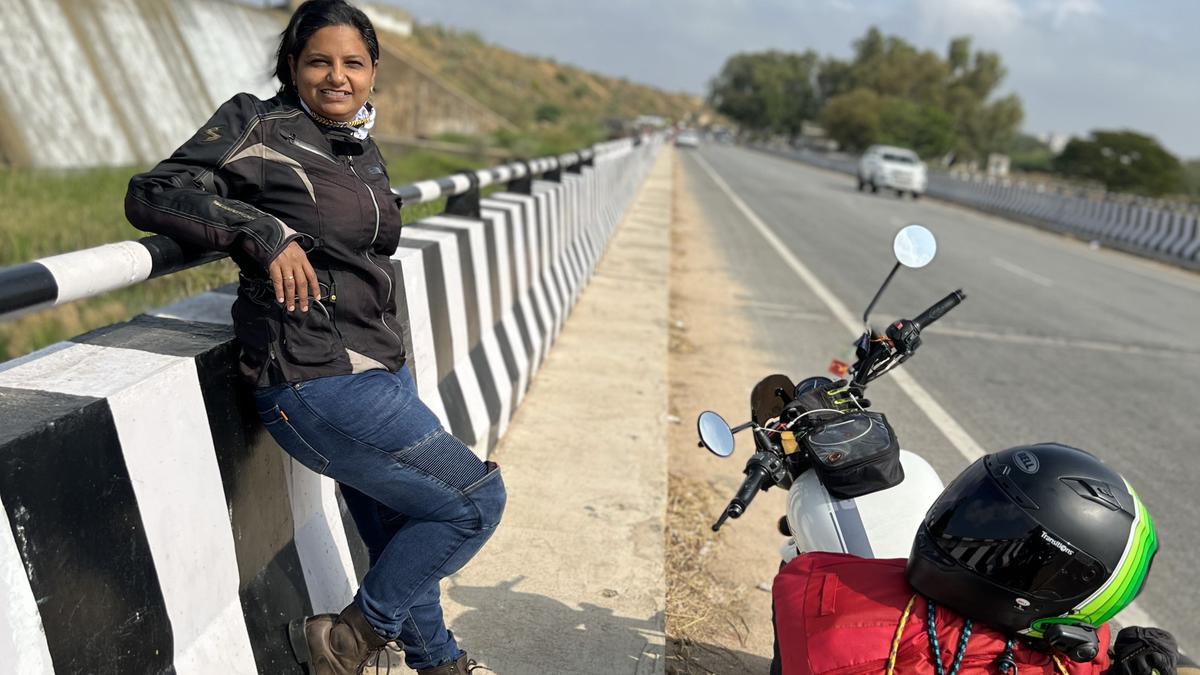
Jai Bharathi: handlebar high
The Hindu
The Hyderabad-based motorcyclist Jai Bharathi hopes to enable a million women in mobility by 2030
When motorcyclist Jai Bharathi was leading a group of five riders on a journey from Kanyakumari to Kashmir, she was pulled over by a policeman in the middle of a highway in Madhya Pradesh. She stopped and removed her helmet. “Arrey baap re,” the cop exclaimed. “I didn’t know you were a woman. I just wanted to take a picture with you because no bikers come this way.”
ALSO READ Nikita Sonavane: justice for all
“I’ll pose for a picture if you round up some people,” she told him. “I want to give them a message.”
Within minutes the policeman conjured up a group of 50-60 people, she recalls, but only two of them were female, both under 10. When she inquired whether his village lacked women, he replied that they were safe at home. It was the perfect opportunity for Bharathi to reveal her real self. After a half-hour discussion, she says, the policeman was moved by her message that women need to access the world just like men.
Bharathi, 41, the owner of two Enfield motorcycles and veteran of marathon journeys that usually involve touching/crossing borders, has ridden more than 1,00,000 km across Southeast Asia and the U.S. She dropped architecture and decided to focus full-time on her long-standing passion in 2019. Her not-for-profit, Moving Women Social Initiatives Foundation (MoWo), promotes the idea of women in mobility through advocacy, motor training and livelihoods. It was born of the realisation that everyone on Indian roads still looks at women riders like they are an annual celestial phenomenon. She wants people to view women riders as the norm rather than as something heroic. When she spotted two women in their mid-40s, both bike taxi drivers, standing at a street corner waiting for customers in Thailand, it hit her that this powerful image would be near impossible to recreate in India. “Their counterparts here would be so conscious about what others think,” she says.
In a country that restricts women’s access to public spaces under the guise of ‘safety’ — despite research and data clearly demonstrating that the most dangerous place for them is often their home — women in control of their two-wheel narrative was, until very recently, a story of privilege. In Hyderabad, where Bharathi lives, the road transport authority said recently that only 5.64% of the city’s driving licenses are held by women.
Growing up, she couldn’t help but notice the gender-skewed nature of mobility skills. “Nobody says explicitly that cars are only for men, but women are not associated with automobiles at all,” she says. “Even as children we get dolls, they get cars and bikes.”











